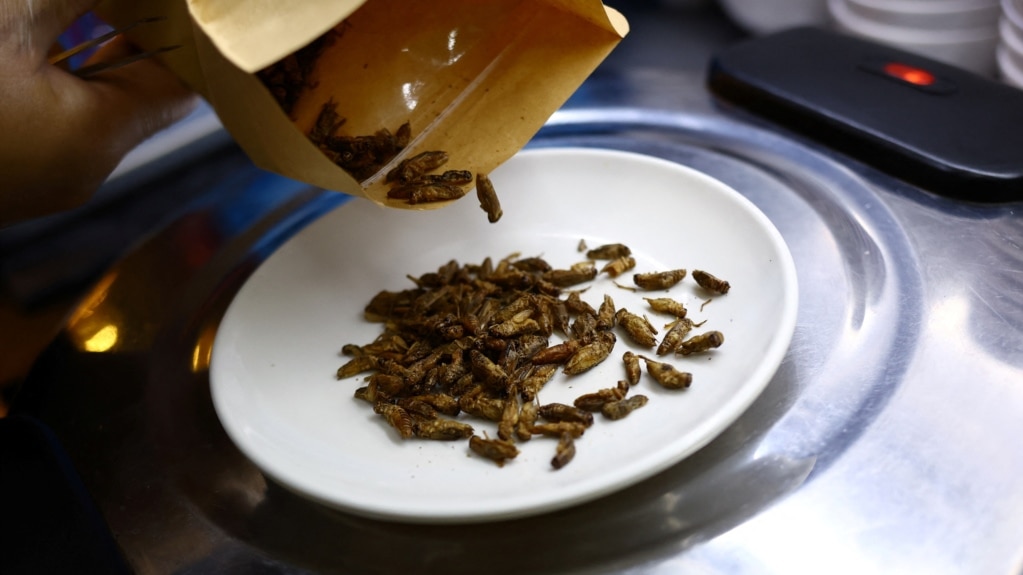Singapore’s House of Seafood restaurant is the country’s first eatery to offer insects to customers.
The change comes after the city state's food authority recently approved 16 kinds of insects for humans to eat, including grasshoppers, grubs and mealworms.
Crickets and other insects have long been eaten as street food in Southeast Asia. But the wealthy financial center places heavy safety and cleanliness restrictions on food imports.
Francis Ng is the chief of House of Seafood. He said customers love it when the dishes bring attention to the insects. For example, the restaurant offers a tofu dish made to look like bugs are crawling out of it and a dish of rice balls decorated with silkworms.
"It looks scarier so customers can film (it) for their Tiktok," said Ng. He added that customers had been calling him regularly to plan a tasting of the dishes.
The restaurant has created a menu with 30 dishes that feature insects, which they can sell to the public once their importers are approved by the food authority. For now, Ng is offering free samples.
In 2019, Singapore declared it was aiming to produce 30 percent of its nutritional needs by 2030. Currently, around 90 percent of food is imported.
Food security expert Paul Teng said insects could certainly help move towards this goal - if people got over "the yuck factor.”
"Most insects are almost all protein," said Teng. Teng added that there needs to be local production to make this new way to get protein less costly.
"Getting people to accept insects in their diet is a challenge. But really, it's a normal food item. Let's do something about it to prepare the consumer for it," he said. "Me personally, I have no problem eating insects."
The United Nations has said bugs can be a sustainable way to get protein to feed the world. The U.N. estimates the global population will reach 9.7 billion by 2050. Extreme weather and conflicts have also increased the interest in insects as high-quality, low-cost nutrition.
In Singapore, all insects approved for human food must be farmed in a controlled environment. The insects cannot be taken from the wild. And they cannot be fed materials like human or animal waste or rotten food, the food agency says.
There has been local interest in importing insects, but cost remains an issue for now: Ng said insects make up 10 percent of his costs at the House of Seafood, and they are all imported.
"The price is definitely higher than eggs," he said.
It is too early to tell if insects will become an important part of the Singapore diet or whether demand will decrease as it has for fake meat products.
But for now, some diners say they are happy to develop a taste for bugs.
"If they have a higher source of protein, why not? I'll add it to my daily meal and daily food intake," said Bregria Sim, a 23-year-old logistics executive. She added that she would be willing to pay about $30 for the unusual dishes.
I’m John Russell.

